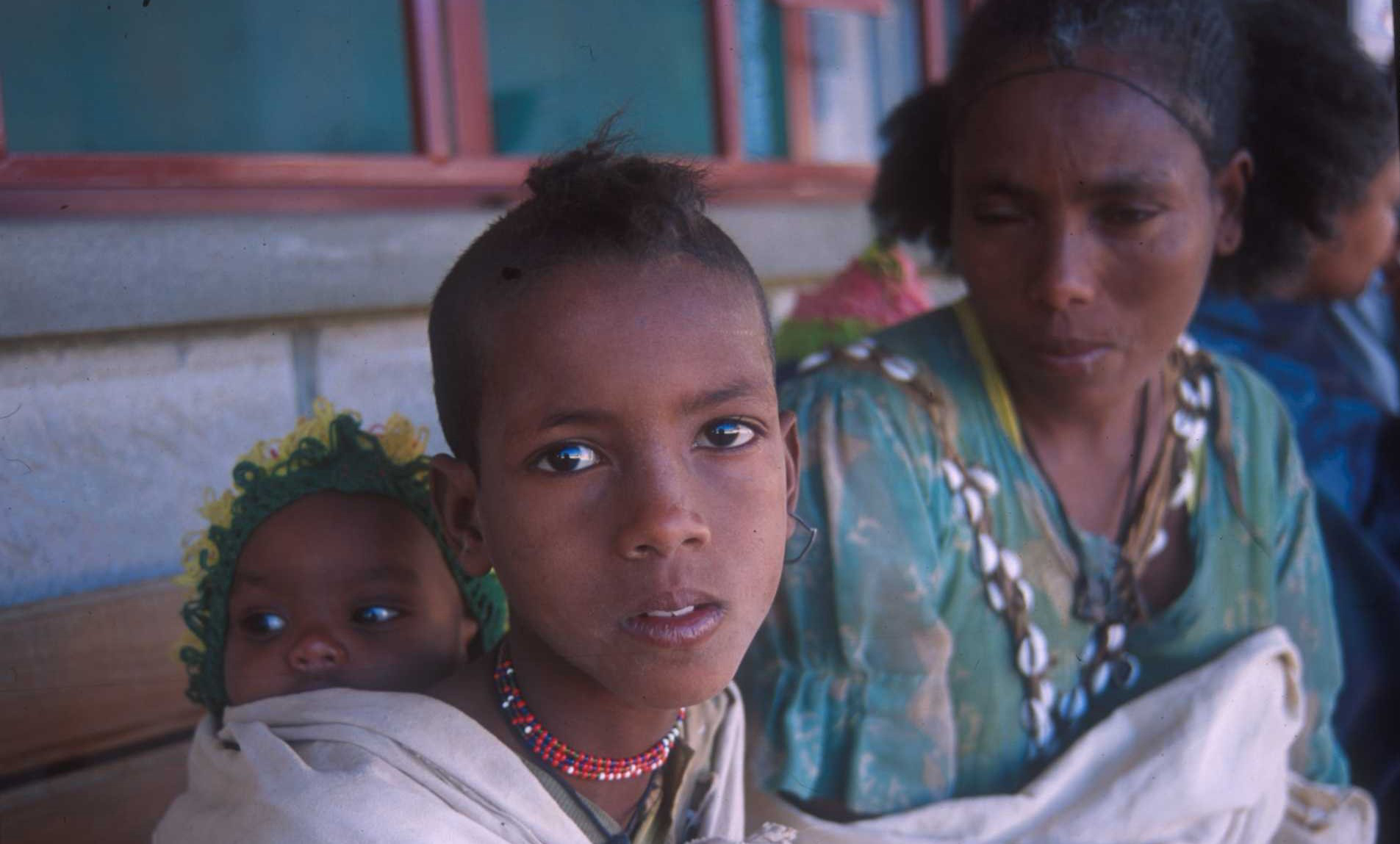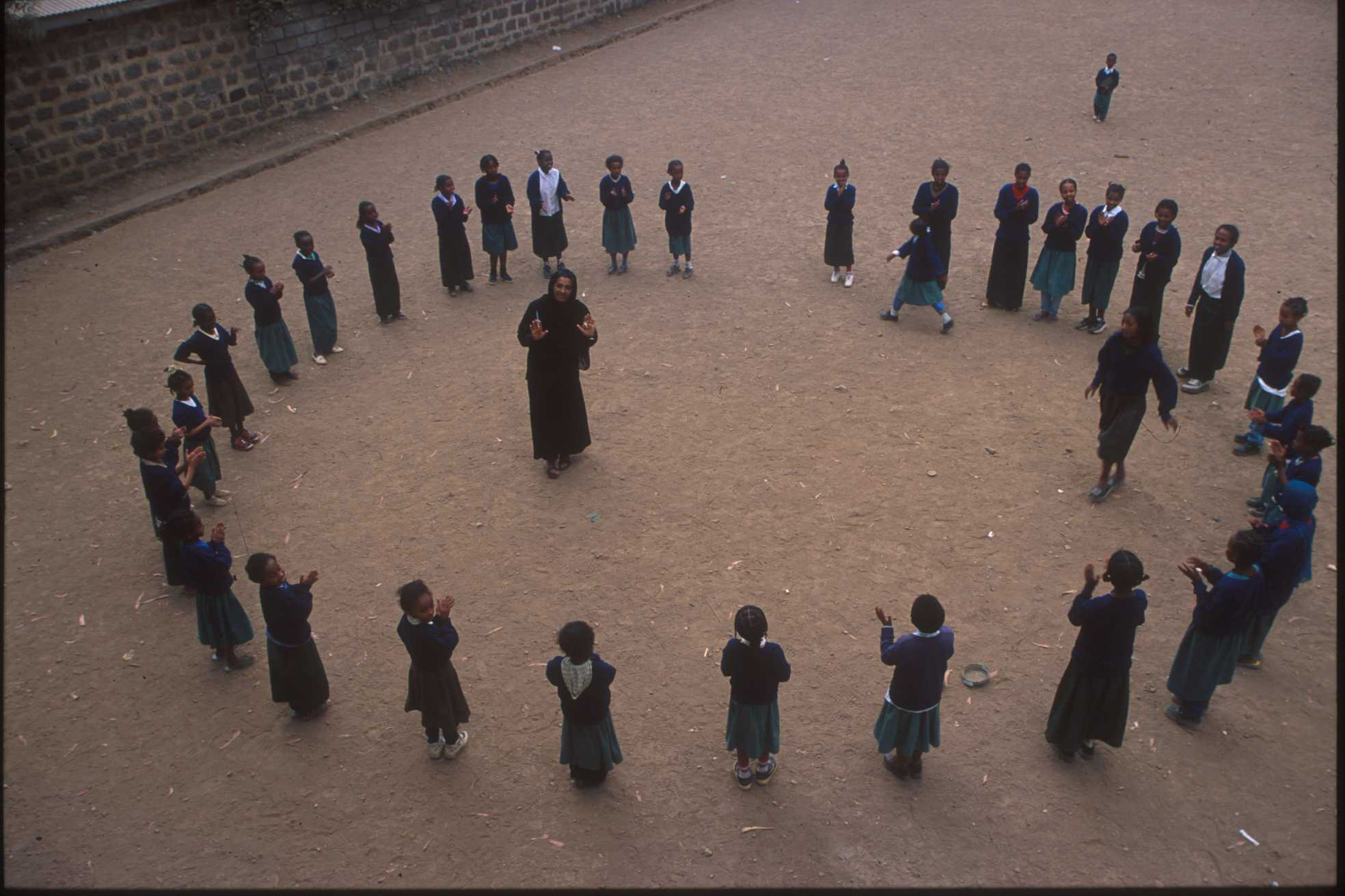Africa, Africas
Cameroon/Ethiopia/Burkina Faso | 2001 | 62 minutes | Color | DVD | Subtitled | Order No. 02769
SYNOPSIS
SCREENING HIGHLIGHTS AND AWARDS
- One World Film Festival, Canada
- Oakland International Film Festival
- World Summit Film Festival, South Africa
- African American Women in Cinema, NY
ABOUT FILMMAKER(S)
One of only a handful of female African filmmakers, FANTA RÉGINA Nacro studied at the INAFEC film school in the Burkina Faso capital, Ouagadougo, and earned a master’s degree from the Sorbonne in Paris. In a career spanning more than 20 years, she’s depicted Africa’s traditions and harsh realities, but she often turns her lens with comic joy on issues of sexuality, gender relations, and modernity. In 1993 she founded her own production company, Les Films du Défi, whose mission is to create, produce, and distribute films, support new filmmakers, and raise awareness of African films. She has won two dozen awards for her work in festivals around the world, from Cannes to San Francisco. She lives and works in Burkina Faso, the West African land formerly known as Upper Volta. (7/12)
Born in Diredawa on October 25, 1970, Maji grew up in Addis until she was 4, when her mother, by then divorced from her father, took her and her brother to Nairobi, Kenya, to escape the aftermath of the revolution that occurred in 1974. After completing primary and most of her secondary school in Nairobi, Maji moved to Canada for her 12th grade year and beyond. Though she enjoyed her studies, she was acutely aware that most of the other students were hoping to land jobs on Wall Street in the investment business, but her interests lay elsewhere. Though she completed her degree in business, she also did an honors program in French literature, which she adored.
Maji-Da Abdi brings an eclectic array of experiences to her work as a film producer and an activist. After several years working first in journalism and then in video and film production for others, she created and directed her first film, THE RIVER THAT DIVIDES, a documentary that tells the story of the women and children who were displaced by the Ethio-Eritrean war, which won a Canadian human rights prize. She also produced THE FATHER, a film directed by Ermias Wolde Amlak, a fictional account of the Red Terror period in Ethiopian history. Committed to helping others find their voice, she directed the Images that Matter short film festival in Addis, training 137 young people from across East Africa and bringing one hundred films from all over the world to the screen in Addis Ababa.
Maji’s dreams for the future are to help build more peace and understanding; not a nationalist, she believes in universal humanity and looks for ways to help develop that idea. She believes that women are inherently creative and, as mothers or potential mothers, geared toward love and peace and hope for a better world. She says that if all of the leadership positions were held by women, there would be fewer wars. She is especially concerned about the world’s water resources and about the environment generally. (8/14)


